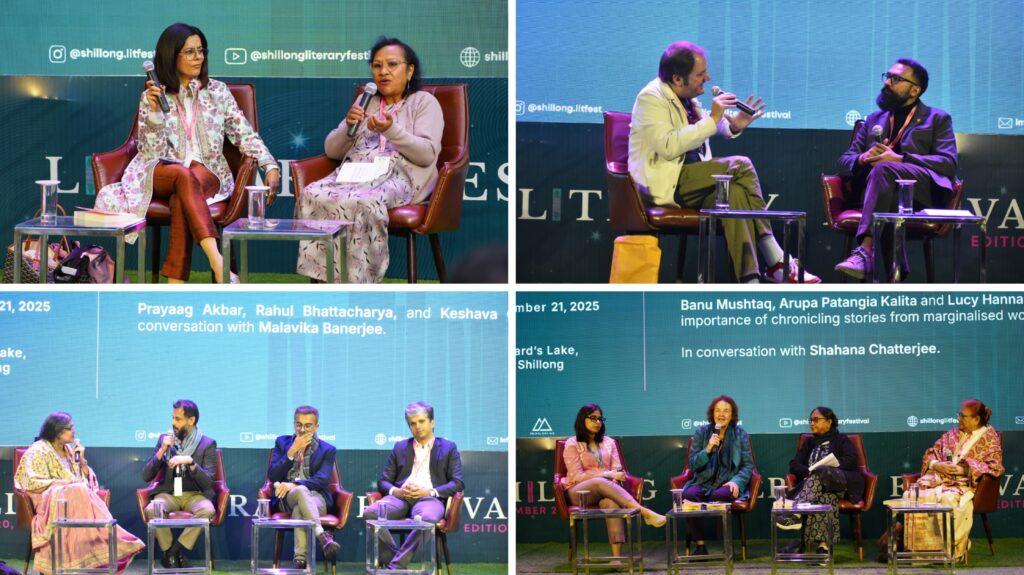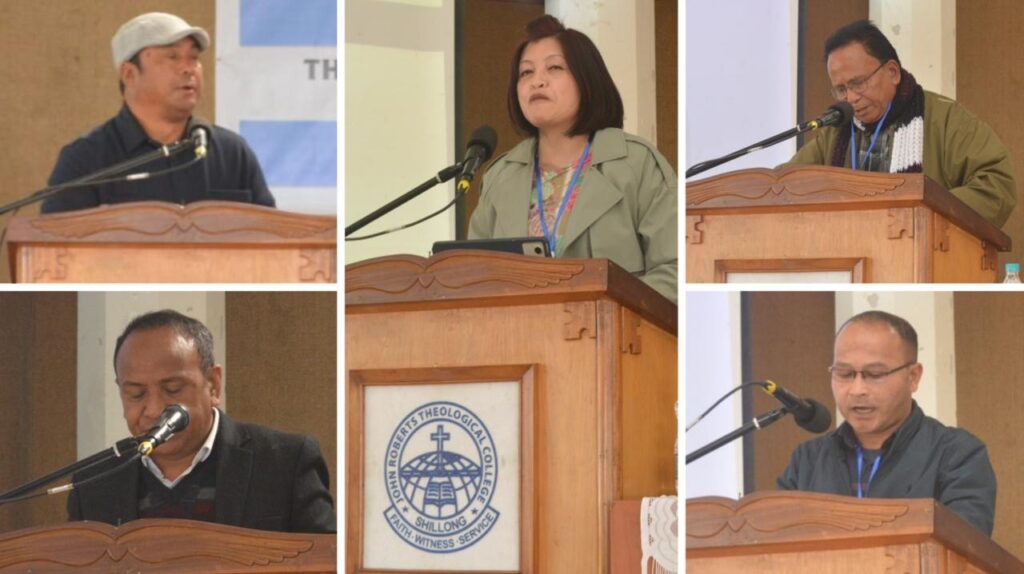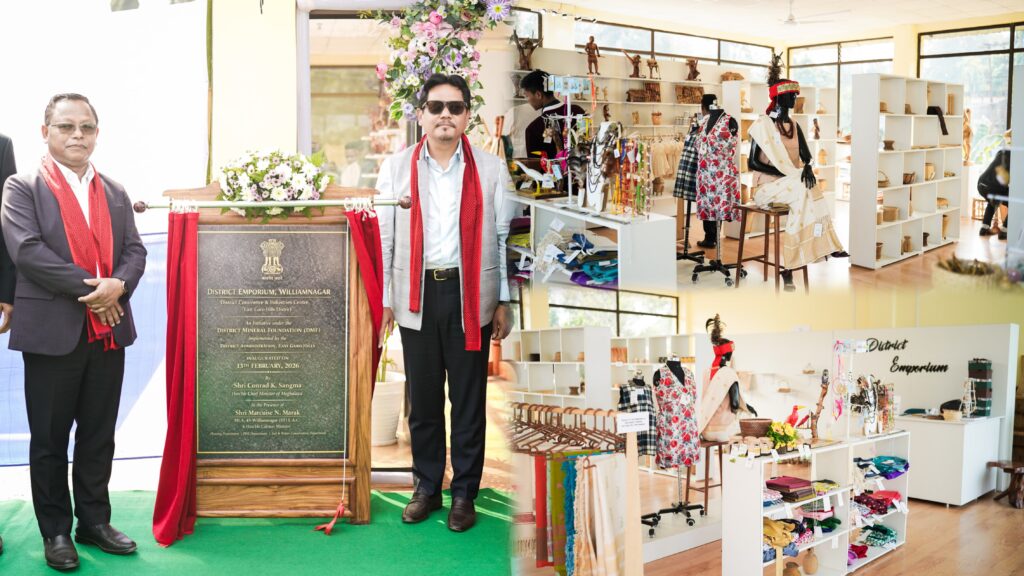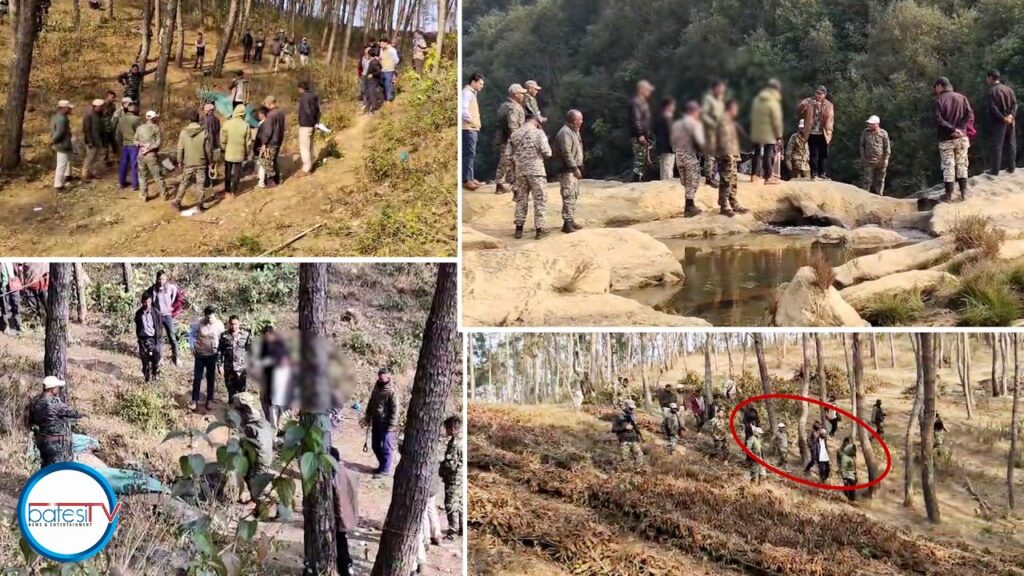HCM announces expansion of Chief Minister’s Research Grant; 75 scholars to be supported for research on Khasi, Garo and Jaintia Tribes
Shillong, November 21 : Day 2 of the Shillong Literary Festival continued to captivate audiences with a wide range of intellectually stimulating sessions and discussions spanning cinema, poetry, history, and culture.
The day began with Conrad K. Sangma, Chief Minister, reflecting on the festival’s evolution from a small gathering to a major platform. Sharing his insights, he said, “Next time, we should have a writing competition. Allow, kids to write, give them a platform. Take them to somebody mentoring them. Meghalaya should become a place where writing becomes part of our system, our culture.”
The Chief Minister highlighted a ₹133-crore economic return from recent cultural investments, reaffirming his vision of positioning Shillong as India’s next arts and literary capital. To further promote research on the roots, history, and culture of the Khasi, Jaintia, and Garo tribes, he announced the expansion of the Chief Minister’s Research Grant to support 75 scholars this year. He added that a dedicated team is already in place to conduct an in-depth study on the three tribes.
He also informed the audience that the entire façade of Ward’s Lake is set for a major transformation, with ₹20 crores already sanctioned and an additional ₹30 crores in the pipeline. The upgrades include laser light installations depicting the state’s history and the creation of permanent arenas for year-round cultural events, ensuring a continuous festive calendar from the Literary Festival through Christmas.
Today’s lineup brought together writers, academicians, and filmmakers from across India and beyond, contributing to open discussions celebrating literature in all its forms. Day 2 commenced with multiple book launches, including River Traveller – Journeys of the Tsangpo-Brahmaputra from Tibet to the Bay of Bengal, Wad ia ka malade (Khasi), European Writing in the Khasi Hills, BSF and Meghalaya – Through the Lens of a Border Man, and From Isolation to Integration: Geopolitics of India’s Northeast.
- The first session, “Life Beyond the Metro”, featured Vinay Pathak, Shri Dominic Sangma, and Rajat Kapoor in a conversation with Shahana Chatterjee on the new geographies of Indian cinema, web series, and storytelling.
Dominic Sangma recalled listening to oral stories from his grandfather and village elders, noting that “stories are everywhere” and waiting to be told to the world. He shared that he is currently working on the third part of his trilogy and expressed gratitude to Hello Meghalaya, the state’s OTT platform, for supporting his latest film.
Rajat Kapoor reflected on the challenges facing independent cinema, stating that the spirit of filmmaking is alive but asking humorously, “But where is the audience?” He shared that his next film is expected in 2026 and that another project featuring Vinay Pathak will begin in a few months.
Vinay Pathak expressed his gratitude for being invited to the Shillong Literary Festival, shared his excitement about working again in Rajat Kapoor’s film, and added that he looks forward to travelling.
In a light moment, Rajat and Vinay turned to Dominic, saying they are eagerly waiting to watch Rapture.
- The session “Poetry Echoing through the Garo Hills” featured poetry readings by Prince S.R. Marak, Sengsime A. Sangma, Jakmatchi M. Sangma, Dr. Rhinkle Mrong, and Fivebilson R. Marak, who captivated the audience with their vivid expressions of Garo poetry.
- An engaging conversation titled “Writing a River” featured Anita Agnihotri and Sanjoy Hazarika discussing the river as a muse. Anita reflected on her extensive journeys and noted that a river is not merely a geographical entity but is shaped by its relationship with civilization. Sanjoy Hazarika, author of River Traveller, observed the impact of climate change on cultivation and highlighted how stories and songs evolve as the river flows through different landscapes.
- In “The Everest Challenge”, Jamling Norgay presented the legendary Tenzing Norgay–Edmund Hillary ascent and shared insights into the life of his father, Tenzing Norgay. In conversation with Brian Kharpran Daly, he recalled climbing Mt. Everest in 1996 and wanting to return, although his wife was opposed. He expressed concern over growing crowd and risks on the mountain today.
- Patricia Mukhim discussed her new book “From Isolation to Integration” onthe geopolitics of the Northeast, emphasizing that integration requires more than physical connectivity.
- A session featuring academicians from the Garo Hills – Bluwin Sangma, Dokatchi Marak, Colnat B. Marak, and Kroshnil Sangma, explored the translation of oral tradition into literature.
- In “Courage Under Fire”, Narayani Basu and Jyotsna Mohan discussed the legacy of KM Panikkar, wartime journalism, and unsung heroes of post-independence India.
- In “Invisible Ink”, Banu Mushtaq, Arupa Kalita Patangia, and Lucy Hannah examined the power of chronicling stories from marginalized worlds.
- Prayaag Akbar, Rahul Bhattacharya, and Keshava Guha discussed the question “Are second novels tougher to write?” This was followed by a reflective conversation where Shehan Karunatilaka revisited his Booker Prize-winning novel The Seven Moons of Maali Almeida with Sanjoy Hazarika.
- The session “The Upamanyu Omnibus” with Upamanyu Chatterjee revisited his classic works, followed by “The Four Purusharthas”, where Francesc Miralles shared his engagement with Indian philosophy.
As the day concluded, the evening came alive at Ward’s Lake with enchanting performances by MGMP artists, bringing together music, culture, and the spirit of Meghalaya in a fitting finale to Day 2.








